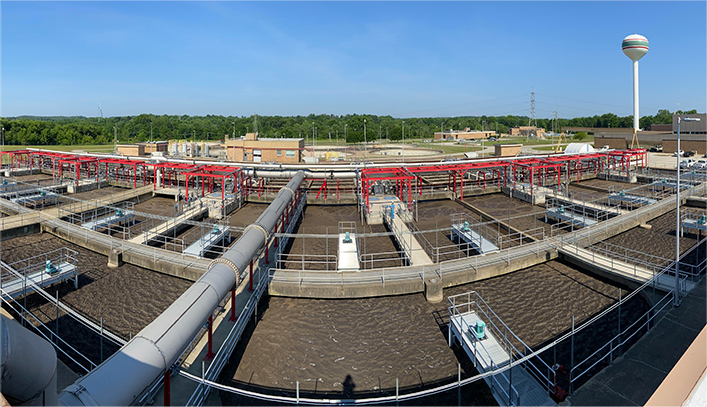06
Together with the City – The Vision Kubota's Mini Excavators Aims for
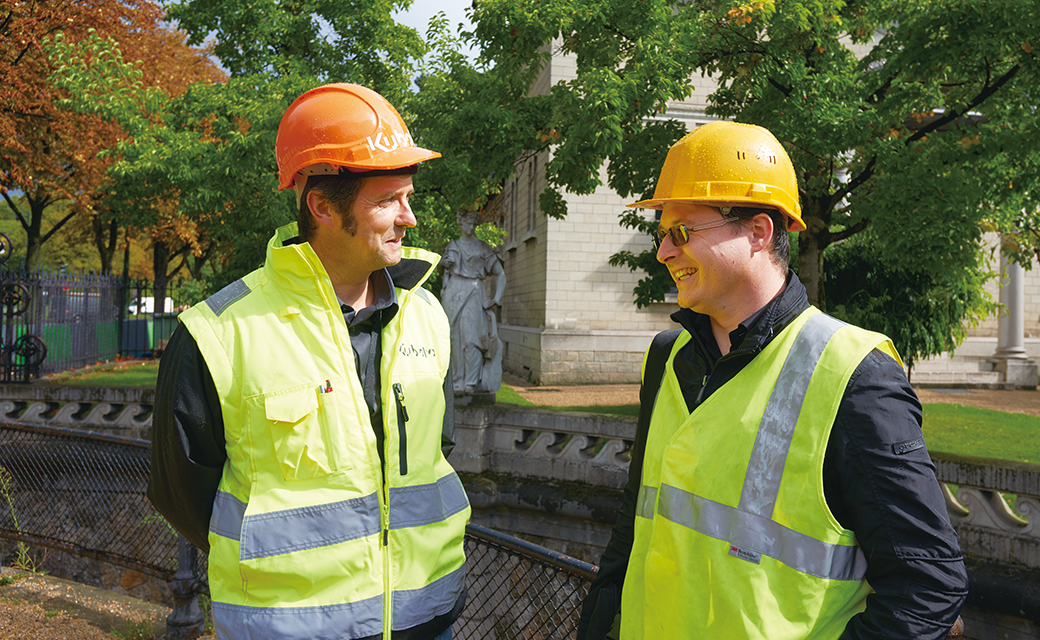
The Marais district retains signs of the Middle Ages
The Marais district of Paris is on the right bank of Seine River north of Saint-Louis Island (3rd and 4th districts of Paris). It is a well-known historical district lined with beautiful 17th-century buildings. The district has also become a symbol of landscape conservation, as it was cited by Malraux in his speech to the National Assembly. With many nobles building mansions in this town, the Marais district was the most prosperous and gorgeous town block in Paris around the 17th century. However, as the streets were lined with buildings over time, the Marais district, which retained the signs of the Middle Ages, gradually declined.
Under the circumstances, Malraux introduced the Malraux Act, under which large-scale construction work was carried out to restore the town of the 17th century. Although some residents were evicted, the Marais district prospered as a tourist attraction as the historical landscape of the 17th century was revived, and still prospers today. The former mansions of the nobility were purchased by the City of Paris, and are being re-used as art galleries and museums. Thus, the Marais district is known as the most elegant district in Paris.
How can urban civil engineering accomplish to preserve valuable historical landscape? Kubota's efforts in Paris have their basis in the landscape of the city and follow the belief that mini excavators can contribute to landscape conservation in ways that are possible only for small equipment.
-
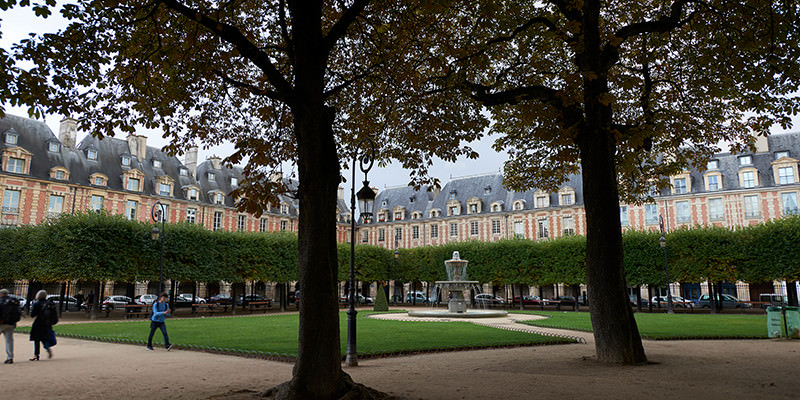
A mansion of nobility in the Marais district. “Marais” means “swamp” in French, as the area had been a large track of farmland filled with swamps until the 13th century. In the early 17th century, after French King Henri IV built the Place Royale (now Place des Vosges), noble people competed to build mansions in the area, shaping the original form of the current Marais district.
Kubota products actively working in Paris
We visited the 16th district of Paris, where a Kubota mini excavtor was on site. Construction was underway near the Auteuil Botanical Garden, which is near the Roland Garros stadium where the French Open tennis tournament is held, adjacent to the Forest of Boulogne. At the construction site, lifelines such as electricity, telephone, water and gas were being laid under the pavement in a public utility conduit. Public utility conduits are considered useful in improving the aesthetics of the town by allowing power cables and such to be buried underground.
In recent years, utility conduits have also been used commonly in Japan. Underground laying of public utility conduits is playing a role in conserving the landscape of Paris. We interviewed Mr. Sylvain Palaric of Bouchard Company, a dealer that supplied the mini excavator to the site. He has been handling Kubota mini excavators for 11 years. “We carried another company's small construction machinery in the past, but we switched completely to Kubota. Quality, reliability and thorough after-sales service were things that other companies just could not match. Above all, Kubota machines were highly prized by operators. The cabins are comfortable, less tiring and a whole lot easier to operate. Excellent durability is also one of the charms of Kubota products.”
The Kubota mini excavator continued its excavation work, as it smoothly blended into the townscape of Paris.
-
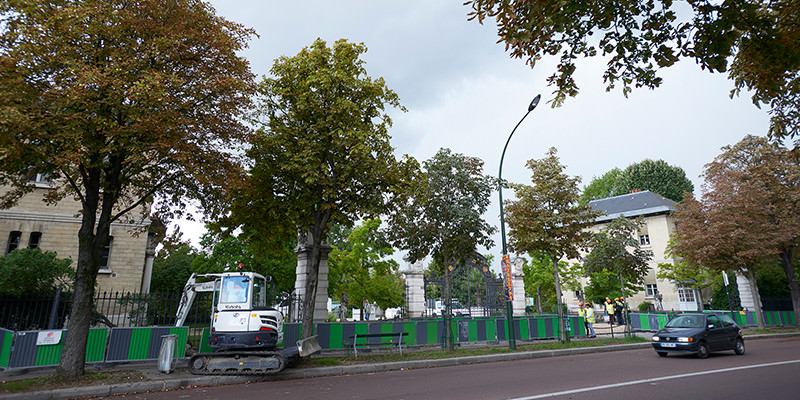
Construction work underway, with a mini excavator blending into the landscape of the Auteuil Botanical Garden. -
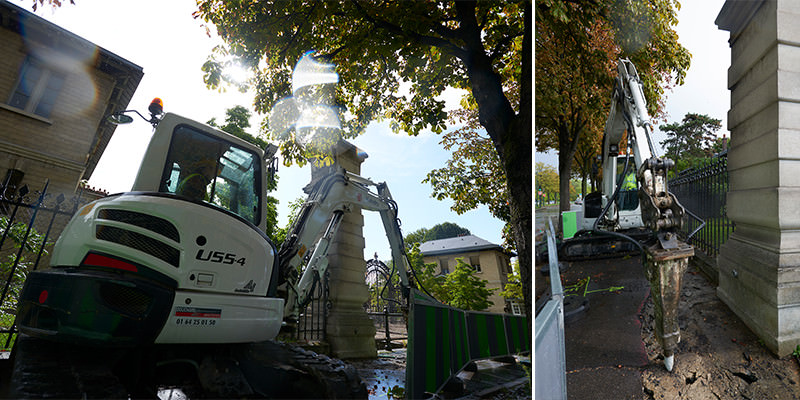
A mini excavator actively working on laying a public utility conduit, taking advantage of its high maneuverability.
Needs for environmentfriendly construction machinery
Not limited to the Marais district, preservation of many old monuments and towns is based on the concept of landscape conservation. Narrow, intricate pavement made of aged cobblestone is another feature of the city of Paris. As this pavement is generally vulnerable to vibration, large construction machinery cannot be easily used. That is one reason that Kubota's maneuverable, light and durable mini excavator equipment is highly prized. Kubota has been ensuring landscape conservation through equipment operation itself; for example, attaching rubber crawlers for operation on cobblestone pavement. Mr. Benjamin Lanni, an operator who runs a company that engages in landscape construction work in Paris, recently purchased three Kubota mini excavators units.
“We switched from another company to Kubota. One reason is the brand power and its high reliability. As operators know intuitively, the vehicle body is well-balanced and high horsepower makes it very powerful. Another point that justifies the selection of Kubota is the quick response to our requests for customization.”
-
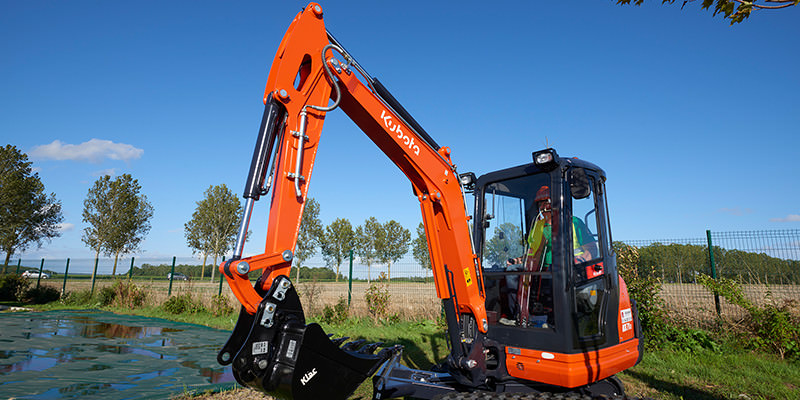
User Mr. Benjamin Lanni checking operation during commissioning. -
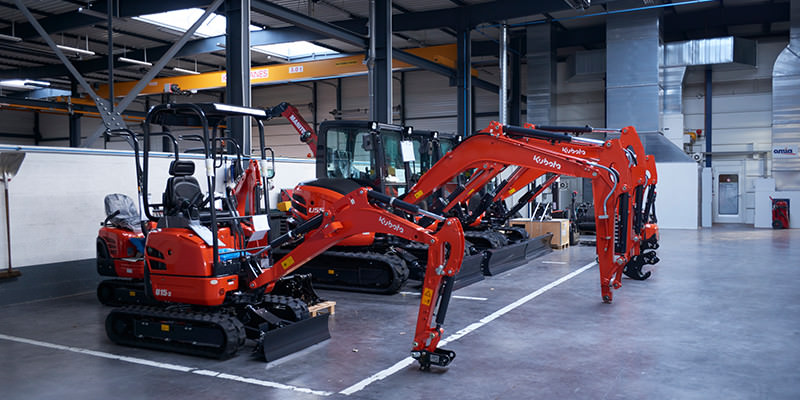
Mini excavators lined up in a dealer's shipping yard. -
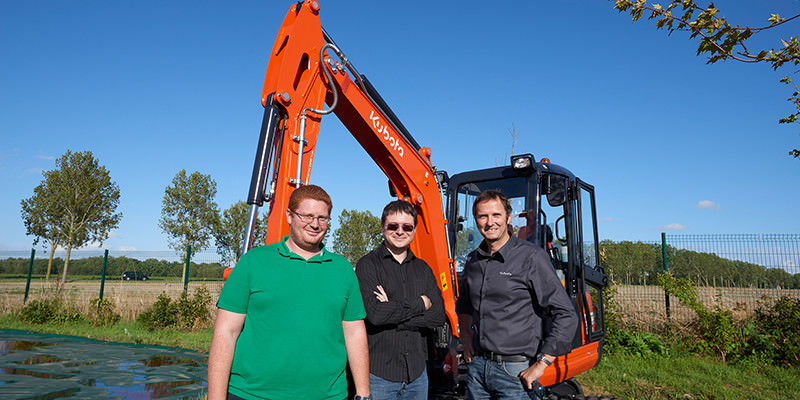
A trusting trio at the delivery of mini excavators: user (left), dealer (center), and KE (right).
We asked Bernard Dewaele, who has been in charge of mini excavators sales at KE for over 30 years, for his outlook on business in Europe.
“Kubota's share in the mini excavator market in Europe is now about 30 percent. Although we are maintaining the top market share, our goal is to pull away from our competitors. In addition, we believe that we have a mission to create a better townscape as we contribute to landscape conservation. In order to achieve these missions, we must provide construction machinery that features, in addition to performance, environment-friendly functions such as countermeasures to reduce exhaust emissions and noise.”
Mini excavator provided by Kubota is becoming the standard in Europe, also in terms of environment conservation—that is the vision that Kubota aims at. Kubota's mini eccavator, which is promoted by many dealers and users, continues to work actively in the city of Paris and in European cities.
France is an agricultural powerhouse, and a mature nation. Kubota's products and technology play key roles in solving the global food problems and conservation of urban landscape and environment, and the role of Kubota products and technologies play is great. By accumulating a track record in France, a nation known for the high awareness of its citizens, Kubota will propose to the world an “image of a sustainable society,” which is a goal of not only France but all developed countries.
